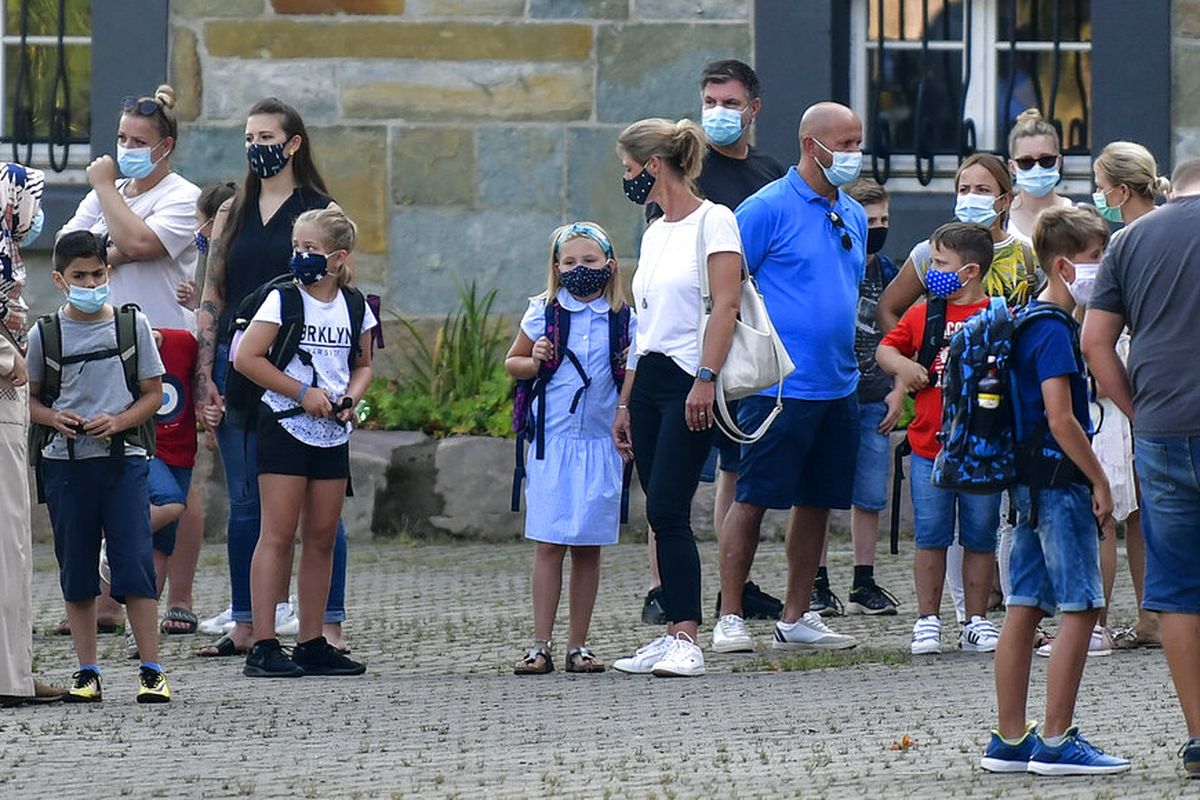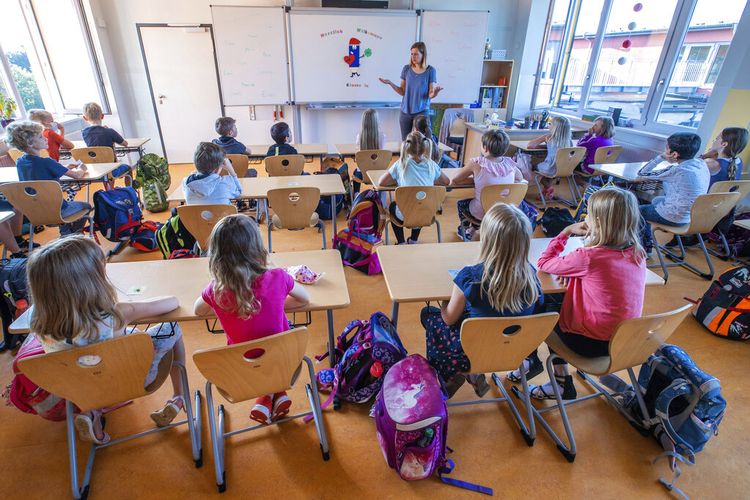Coronavirus Infections or Not, Europe is Going Back to School

But overall, Maillard thinks it’s time to go back. School “has to start up again at some point", he says. "The health risk exists, but the risk of not putting children in school is even bigger.”
During the lockdown, he said, some students never joined his online French literature classes.
Some had no place to work, or no computers, just telephones they used to send blurry photos of handwritten work.
“Our students really, really need school,” he said. For some of those growing up in an environment plagued with violence and drugs, school “is a place where they can breathe”.
Unlike the US, many European schools reopened at the end of the last term, offering lessons for the fall.
Among measures in place: hand-washing stations, one-way corridors, staggered starts, and lunchtimes. Some regions are giving out free laptops, in case of new lockdowns.
Many countries require masks in school, but rules vary on where to wear them and from what age.
In southeast London, father of three Mark Davis is looking forward to schools reopening in early September but is vexed about what will happen if there's a new virus wave.
“Everyone is gunning for this (return to school), but it’s no good just hoping for the best,” he said. “Plans need to be put in place.”
So far the government says schools will only close as a last resort. But parents say the government’s message hasn’t been clear.
Read also: It's Online-Only Lectures for Indonesian Universities until WHO Norms are Met
Most of the UK’s 11 million students haven't seen a classroom since March, and reopening schools tops the political agenda.
Britain has 41,515 virus-related deaths, the highest confirmed toll in Europe, and Johnson’s government has been strongly criticized for its handling of the pandemic.
Some European schools are planning or considering a hybrid academic year, with some physical classes and some online. But most are aiming for full in-person classes.
That's in line with guidance by global organizations like UNICEF, which said Thursday that at least a third of the world’s schoolchildren were unable to access remote learning during lockdowns.
It warned that "the repercussions could be felt in economies and societies for decades”.
Medical experts say the risk of opening schools depends on how widespread Covid-19 infections are in the community and what safety measures are taken.
Evidence suggests young children don’t spread the disease very easily, while kids aged 10 and up may transmit as easily as adults.
But experts say more conclusive proof is needed. And even though children appear less likely to get infected than adults, severe cases and deaths have occurred.



































